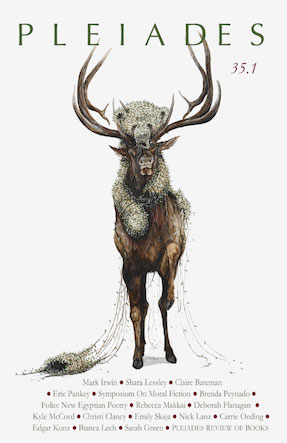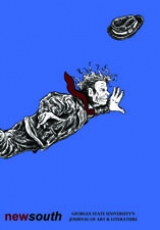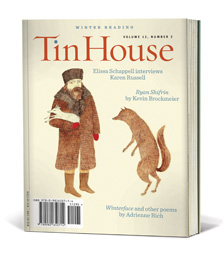Work

The Museum of the Dearly Departed
“There had been a leak.
Deep in the basement and then through the walls and floors of the building, gas had poured, scentless, at two a.m. After the fire trucks and news trucks and gawkers had dispersed, after one body had been sirened away and eleven more secreted out under sheets, the building sat empty for a week. The only survivor died in the hospital, never having woken. All twelve of them, that meant, died in their sleep. There had been no calls to 911, no bodies sprawled halfway to the door—just the mailman’s cry for help the next morning after three poisonous minutes at the lobby mailboxes. Despite the earnest reporters’ enunciation of “deadliest” and “perfect storm,” the public was not as horrified as it pretended. “That’s really the way to go,” people murmured to their TVs.
On the eighth day, the hottest of July, the old Hungarian couple returned from Cleveland and stood staring at the yellow tape, suitcases by their sides, taxi waiting to be paid. They hadn’t heard.”

K-I-S-S-I-N-G
“It was like watching a soccer ball fall through tree branches. It was guaranteed to reach the ground, but how soon and what path it would take to get there were both unpredictable and completely irrelevant. The point was that the ball would hit the earth, and there you’d be.
And there they were, on the bed, her sarong on the floor, his fingers down the front of her bikini bottom and then up, inside her. Her mouth hitting his like a magnet. Her legs locked around his back.”

Everything We Know about the Bomber
“He was on the FBI’s radar, and then he was not. He was someone’s son, and then he was not. He had a girlfriend, and then he did not. He had a beard, and then he did not. His sister understood him, and then she did not.”

Cross
“He had wedged his thigh between her legs, and she felt her feet leave the earth, felt the dampness of the building soak through the back of her dress. Gravity rearranged itself so that leaning back against the theater’s slippery verticality was enough to keep from floating off into the night.”

The November Story
An edited version of “The November Story,” which originally appeared in Crazyhorse, was featured on This American Life in August, 2011. You can listen to the whole thing if you click the link. Yes, this is my voice. No, it isn’t a true story. No, I didn’t get to meet Ira. Yes, recording this is the coolest thing I’ve ever gotten to do.

Our Plastic-American Brethren
“Kurt enjoyed picturing their shock, the dim-witted thieves, as they unzipped the black canvas bags. Right about now they’d be squatting on the floor of some desolate apartment with Ziplocs of marijuana on the coffee table and a broken TV. One of them, most likely named Cletus, spreads the flaps and sees, gaping up, the putty-colored face, the serenely closed eyes, the plastic sheeting vomiting forth from the O-shaped mouth of a Plastic-American brother, and he, Cletus, screams like a little girl, or like the junkie he is.”

The Way You Hold Your Knife
“Ulf, the museum director, whose hand she’d shaken on the way in, who had offered her a sympathetic and conspiratorial nod, announced loudly from the information desk in Danish, then English, that the museum would close in ten minutes. A few people began to leave—the boys with the sneakers followed their parents toward the exit—but there were still twenty people now, maybe thirty, clustering together near the windows, feigning interest in the wall plaques and photos of carnivorous plants.”

The November Story
“Markus is a gifted crier. We just say, “Tell us how your grandfather would feel,” and he gushes like Miss America. “My grandfather would be so proud of me,” he says, and blows a kiss to the sky.
Or we ask if he feels that his whole life has been a struggle. He says, “I just feel like my whole life has been just this huge struggle,” and then he starts snorting and choking and holds up a finger.
The producers love the criers, and they love the cocky bastards, and they love the snarky gay men. The others, we try to get drunk. We flirt with the straight guys, if there are any. If necessary, we feed them lines.

Peter Torrelli, Falling Apart
“ When Carlos asked why I would risk my whole career for Peter Torrelli, I told him he had to understand that in those last three years of high school, Peter and I were the only two gay boys in Chicago. Because I really believed it, back then, and twenty-five years of experience proving otherwise was nothing in the face of that original muscle memory: me and Peter side by side on the hard pew during chapel, not listening, washed blind by the sun from the high windows, breathing in sync. It didn’t matter that we weren’t close anymore, I told Carlos. The point was, he’d been my first love. I’d never actually loved him, but still, listen, believe me, there’s another kind of first love.

The Briefcase
Anthologized in The Best American Short Stories 2009 and elsewhere.
“With his left hand, he adjusted the loop of steel that cuffed his right hand to the line of doomed men. His hand was starved, his wrist was thin, his body was cold: the cuff slipped off. In one beat of the heart he looked back to the man behind him and forward to the man limping ahead, and knew that neither saw his naked, red wrist; each saw only his own mother weeping in a kitchen, his own love lying on a bed in white sheets and sunlight.
Listen to Isaiah Sheffer’s interview with Rebecca about The Briefcase


